MENOPAUSE AND INSOMNIA
Menopause and insomnia prevents women from getting enough sleep.
This is a more common complaint in women than in men and is detrimental to your health
I experience restless nights more often as I you get older and getting closer to menopause?
Unable to sleep I find myself tossing and turning trying to find a good position to calm and have a restful sleep. I always end up disturbing my husband in the middle of what could have been a restful night for him. I thought to myself, “What is happening… it’s 3 am on a working day and I’m still wide awake? I got back to bed after the toilet... why am I having a difficulty going back to sleep???!!! I fell sleepy but I cannot put myself to sleep?! Will this hard-times go on and on and on?” No matter how hard I try to have a good night's sleep, it seems to very elusive to get one.
Menopause and insomnia are quite difficult situations combined.
I was 49...
MENOPAUSE AND INSOMNIA - WHY IT HAPPENS?
Menopause refers to the time when the woman’s ovaries stop producing eggs - thereby menstruation also stop - for one year accompanied by declining production of estrogen hormones. In your menopausal stage, you might be having some sleeping problems. It is one of the most common menopause symptoms most women are experiencing. Estrogen hormones affect sleep.
When you are having difficulty getting enough sleep or putting yourself to sleep or even if you have fallen asleep already, you have difficulty staying asleep because you wake up from time to time, you are suffering from a disorder called insomnia.
Insomnia is often one of the menopause problems and one symptom to identify if you are entering perimenopause. (1) Well this is mostly due to decline in estrogen hormones.
Some complications in menopause are directly connected with other complications in one way or another. Say for example, hot flashes and night sweats are some of the common causes you have difficulty falling asleep. And then if you are experiencing insomnia, consequently you will have menopause mood swings due to lack of sleep, you might feel exhausted, irritable and stressed which will probably lead to anxiety or worse depression.
HOW TO KNOW IF YOU ARE SUFFERING FROM INSOMNIA?
5 SYMPTOMS TO LOOK FOR (1)
- Your sleep duration is less than 6 hours for three or more nights in a week
- You tend to wake up too early
- You have trouble falling asleep, usually takes more than 30 minutes
- You wake up not feeling well-rested and sleepy
- You are worried about not getting enough sleep
Should you experience these symptoms, it is best to consult with your physician right away so that he or she can help you with your sleeping problems.
We all need sleep and rest and not getting proper and enough sleep time can cause many health problems and complications.
10 WAYS TO HELP YOU IMPROVE YOUR SLEEP!
You can take care of your body in a healthy way - at perimenopause, at the menopause and even at postmenopause.
who says you can’t do that? This depends on your preference and of course, the advice from your physician.
The following are some of common ways to improve your sleep from Women's Health & Concern website
- It is important to establish your sleeping routine. Try to determine what time you will go to bed and what time you will wake up. Follow this pattern everyday for some weeks.
- Avoid caffeine during late time of the day. Unfortunately, it includes your coffee, tea and chocolates (huhuhu it is so sad). Another thing to avoid is alcohol. Contrary to the common notion, alcohol does not help you fall asleep at night.
- Avoid having naps of more than 30 minutes in the late afternoon.
- It is also important to have exercise daily - even 30 minutes a day will be fine. It is best to do this in the morning.
- Keep your bedroom well-ventilated, dark and comfortable to lessen night sweats and hot flashes.
- You can also wear comfortable, preferably cotton fabrics as your bedroom attire so that you will have a good night sleep.
- Going to bed too full or too hungry is also not the best thing to do.
- Stay away from your gadgets before going to bed.
- Going to the physician and have yourself checked. Your physician may prescribe: a. Antidepressants - these are drugs to help you keep calm and increase sleep and are also used to control night sweats and hot flashes - problems that often disturb your sleep. (3) b. Hormone Replacement Therapy (HRT) - if antidepressants are not enough, HRT is a common medical approach when dealing with insomnia. He may administer hormones in the form of pills, cream or patch. (3)
- You may also want to try menopause natural remedies. These are healthy, non-toxic products and natural herbs to help you find a good sleep at night as well as help you maintain good bodily functions.
REFERENCE
- https://www.healthline.com/health/menopause/menopause-and-insomnia
- https://www.womens-health-concern.org/help-and-advice/factsheets/menopause-and-insomnia/
- https://www.webmd.com/menopause/guide/sleep-disorders-sleep-menopause#1
We know your menopause and insomnia journey is
hard, however you can take charge to at least
minimize the symptoms you are experiencing, and
you can do it quite gracefully too.
RELATED POSTS
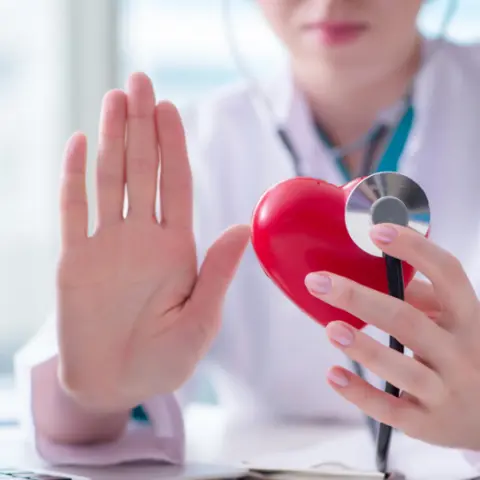
MENOPAUSE AND HEART DISEASE
Cardiovascular diseases are the leading cause of death for older women in the United States, Canada and Australia.
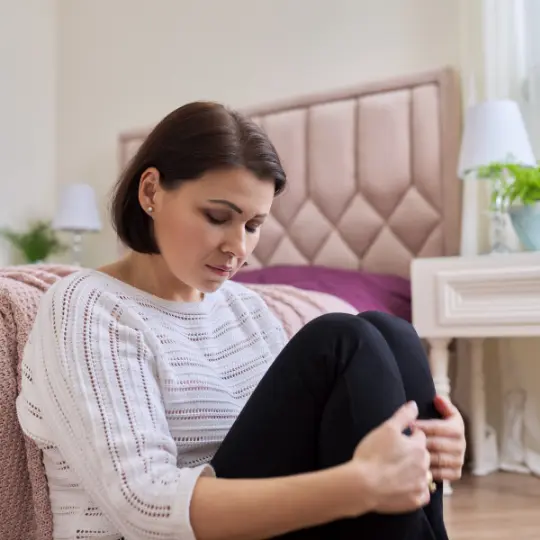
DEPRESSION IN MENOPAUSE
Depression in Menopause is more common than you may think.
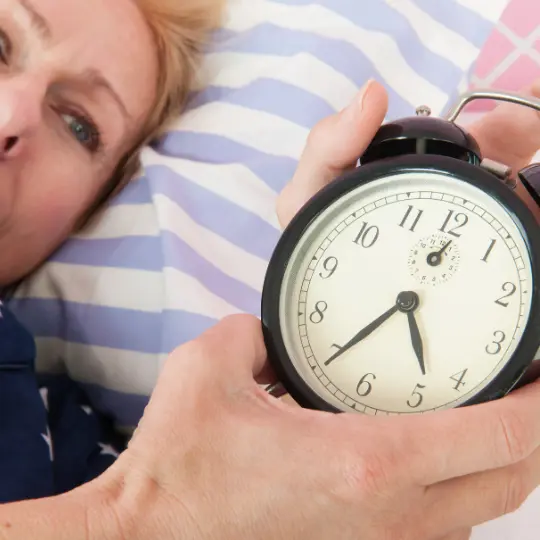
MENOPAUSE AND INSOMIA
This is a more common complaint in women than in men and is detrimental to your health.
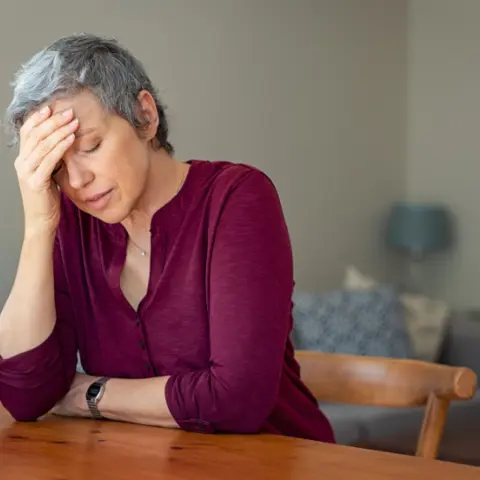
MENOPAUSE & HYPERTENSION
The onset of hypertension during menopause can cause additional concerns to women's health.
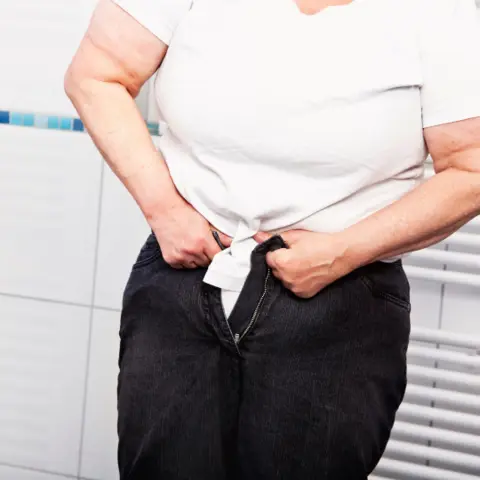
MENOPAUSE & WEIGHT GAIN
Weight gain can rob you of expanded activities you can do before and foods you want to eat - yes, because you...

MENOPAUSE & HOT FLASHES
One of the most common complications of menopause is probably the hot flashes and the one that can last for a long time...
EXPLORE

STAGES OF MENOPAUSE
The clues and symptoms are the result of unbalanced and changing hormone levels of oestrogen in your body.
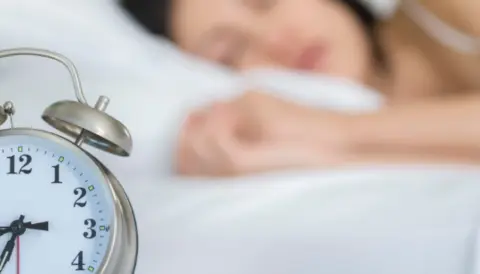
COMPLICATIONS
Complications of menopause - the risks women face for certain health problems; heart disease, depression, weight gain, insomnia, hypertension, osteoporosis
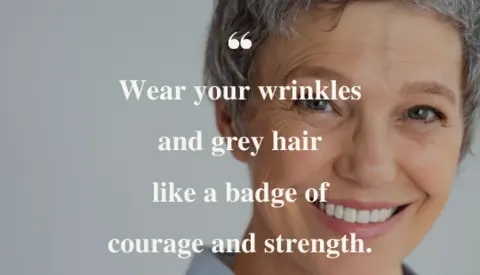
MENOQUOTES
There are 3 billion women who, sooner or later will experience Menopause but many still find it uncomfortable to talk about… it’s about time we change this.
